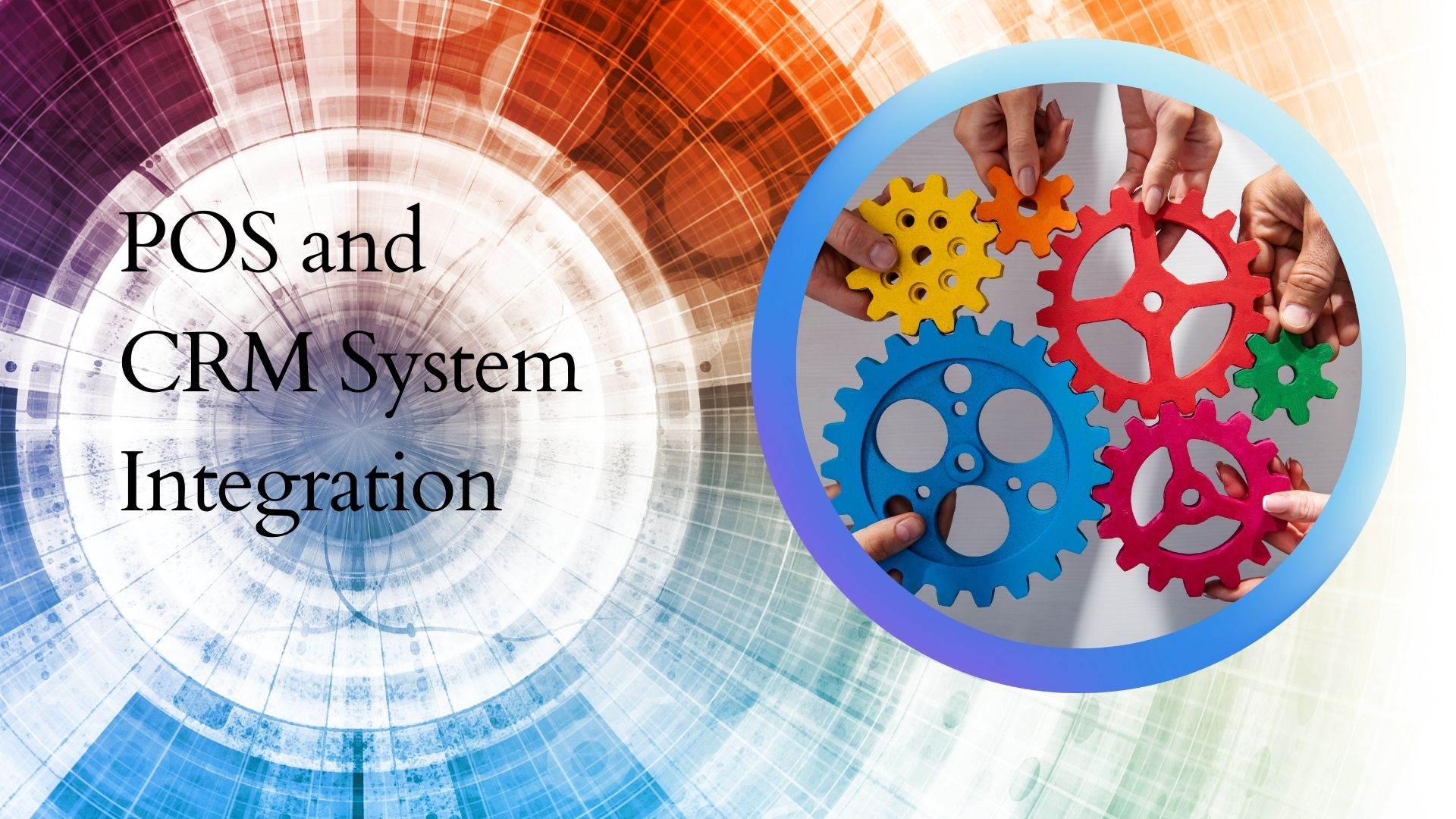A POS system processes sales transactions, while a CRM system manages customer relationships. Both are essential for business operation and growth.
A Point of Sale (POS) system is the heart of a retail business, facilitating the sales process by handling transactions and inventory management. On the other side, a Customer Relationship Management (CRM) system is like the brain, working behind the scenes to maintain customer data, track interactions, and personalize customer engagement.
Together, they form a duo that not only helps in selling products but also in building lasting customer relationships. Integrating a POS with a CRM can streamline operations and enhance the overall customer experience, ultimately driving sales and loyalty. This synergy enables businesses to leverage data and insights for strategic planning and decision-making.

Credit: m.facebook.com
Introduction To Pos And Crm Integration
POS (Point of Sale) systems are crucial for modern retail and hospitality businesses, streamlining transactions and inventory tracking. These sophisticated systems enable businesses to process sales, manage customer interactions, and monitor sales data in real-time. Integration of POS with robust CRM (Customer Relationship Management) solutions can transform a business’s approach to sales, customer service, and marketing.
CRM solutions serve as a repository for customer data, capturing every interaction, preference, and purchase. This data becomes valuable for businesses aiming to tailor their marketing efforts and enhance customer experiences. Synchronizing CRM software with POS systems provides a cohesive view of customer behaviors and preferences, leading to more personalized service and targeted promotional activities.
| Integration Benefit | Impact on Business |
|---|---|
| Unified Customer View | Personalized interactions and improved customer satisfaction |
| Efficient Data Management | Increased accuracy and time-savings in operations |
| Enhanced Sales Intelligence | Strategic decision-making based on comprehensive analytics |
Integrating POS and CRM systems creates a powerhouse of customer intelligence, enabling businesses to fine-tune their sales strategies and drive growth. The resulting sales intelligence makes it possible to anticipate market trends, understand customer needs, and provide exceptional service, leading to sustainable loyalty and revenue enhancement.
Benefits Of Integrating Pos With Crm
Integrating POS with CRM systems offers significant benefits, streamlining business operations and enhancing the customer experience. Real-time customer data synchronization ensures that customer interactions are updated instantly across both platforms, providing a comprehensive view of customer activities. This integration enables businesses to offer a more personalized customer experience, tailoring marketing efforts and promotions to individual preferences and purchasing history.
Improved sales forecasting and analysis become achievable through the consolidation of sales data, which allows for precise trend analysis and inventory control. Closely related to this is streamlined inventory management, where accurate sales data predicts inventory requirements, reducing overstock and stockouts.
Customer loyalty and retention see marked improvements as businesses can identify, reward, and retain their most valuable customers through targeted loyalty programs and incentives facilitated by the CRM’s insights into customer behavior.
Implementation Strategies
Assessing your business needs is vital before integrating a POS and CRM system. Identifying particular goals, such as improving customer interaction, streamlining sales processes, or gathering detailed analytics, will guide the choice of software features.
Choosing the right integration platform involves evaluating compatibility with existing infrastructure, ease of use, and scalability. Ensuring seamless data synchronization between the POS and CRM is critical to avoid operational disruptions.
Data migration necessitates meticulous planning. Employ proven methods like backing up data, cleaning datasets for duplicates or errors, and carrying out a trial migration to detect potential issues.
Employee training is essential for successful system adoption. Comprehensive training sessions that cover not only the technicalities but also the benefits of the new system help in garnering staff support.
Maintaining data security and privacy should be a priority throughout the implementation process. Adhering to industry standards and regulations, such as GDPR, ensures that customer information is handled responsibly.

Credit: www.xumagazine.com
Overcoming Common Integration Challenges
Handling data duplication and inaccuracies requires a meticulous approach to ensure data quality. Implementing robust data management protocols can significantly reduce instances of duplicated records. Regular audits and cleansing processes are vital in maintaining data integrity. It is essential to have a single source of truth within integrated systems to prevent discrepancies.
Addressing system compatibility issues demands a thorough assessment of the technical specifications of both POS and CRM platforms. Ensuring they can communicate effectively often involves leveraging middleware or custom API solutions. Compatibility extends beyond software to hardware considerations, requiring consistent updates and testing.
Ensuring a continuous workflow during transition is critical for business operations. Crafting a transition plan that minimizes disruption involves training staff, scheduling system downtimes during off-peak hours, and providing clear communication channels for addressing any arising issues.
| Support and Updates | Actions for Alignment |
|---|---|
| Regular software updates | Plan and schedule updates to minimize impact on operations |
| Staff training | Continuous learning programs for new features and workflows |
| Technical support access | Maintain relationships with software providers for timely assistance |
For support and updates, adopting a proactive approach in managing the systems is crucial. It involves planning for regular updates, ongoing staff training on new features, and establishing a system for quick access to technical support. This proactive maintenance helps in aligning both systems and ensuring they operate harmoniously.
Case Studies: Success Stories And Lessons Learned
A number of retailers have reinvented their operations by effectively integrating Point of Sale (POS) and Customer Relationship Management (CRM) systems. This powerful union has led to streamlined customer interactions, enhanced data collection, and ultimately, a significant boost in sales. Multi-Channel Integration stands as a testament to the unified approach, allowing brands to provide a consistent experience across both physical stores and digital platforms.
Failed integration endeavors serve as cautionary tales, underscoring the importance of robust strategy and flexibility. These instances reveal common pitfalls such as inadequate training, poor data management, and underestimation of resource investment. Meanwhile, advancements in AI and Machine Learning suggest a promising future for POS-CRM ecosystems, potentially revolutionizing how retailers interact with their customers through predictive analytics, personalized marketing, and automated inventory control.
Conclusion: Future-proofing Your Sales Process
Integrating POS and CRM systems signifies a strategic commitment to upgrading sales processes. This synergy not only streamlines transactions but also enhances customer relationships by leveraging data-driven insights. Businesses must adapt to this technological transformation to maintain a competitive edge.
With an integrated solution, companies can expect a seamless flow of information across departments, ensuring a unified approach to customer management. The ability to scale operations effectively becomes a reality, as these systems accommodate growth without sacrificing service quality or operational efficiency.
Embracing continuous adaptation and improvement is paramount for long-term success. Forward-thinking businesses will invest in ongoing training and development to harness the full potential of their sales intelligence tools, staying well-informed about emerging trends and ready to implement innovative strategies.
Credit: www.tokinomo.com
Frequently Asked Questions On Pos And Crm System
What Crm Means?
CRM stands for Customer Relationship Management. It refers to tools and practices that businesses use to manage interactions with customers and potential clients, aiming to improve relationships and drive sales growth.
What Is The Pos System?
A POS system, or Point of Sale system, is a combination of hardware and software used by businesses to conduct sales, process payments, and track inventory.
What Is The Purpose Of Utilizing Crm & Pos Technologies?
CRM and POS technologies streamline customer relations and sales processes. CRM manages customer interactions for improved service, while POS facilitates efficient transaction handling and inventory tracking. Both enhance overall business efficiency and customer satisfaction.
What Are The Four Types Of Pos Systems?
The four types of POS systems are traditional point-of-sale, mobile POS, cloud-based POS, and self-service POS kiosks. Each offers unique features for various business needs.
Conclusion
Embracing the synergy of POS and CRM systems can transform your business. It streamlines operations and elevates customer experiences. As this integration becomes essential, the competitive edge it offers is too significant to ignore. Make the smart choice; invest in a unified POS and CRM solution to reap the rewards for your business success.

Oscar Giles is a multifaceted expert with a distinctive proficiency in product launches, mutual funds, and startup investments. With a comprehensive background in finance and strategic marketing, Oscar Giles has become a trusted advisor in the dynamic intersection of introducing new products and navigating diverse investment landscapes. Her career is marked by successful product launches, where she seamlessly integrates financial acumen with market trends to drive successful market entries. Simultaneously, Oscar Giles’s expertise extends into the world of mutual funds and startup investments, where she excels in identifying and nurturing high-potential ventures. Her unique skill set allows her to bridge the gap between innovative product offerings and strategic investment decisions. As a thought leader in these interconnected domains, Oscar Giles continues to shape the conversation around effective product launches and smart investment strategies, offering valuable insights to entrepreneurs, investors, and businesses alike.


